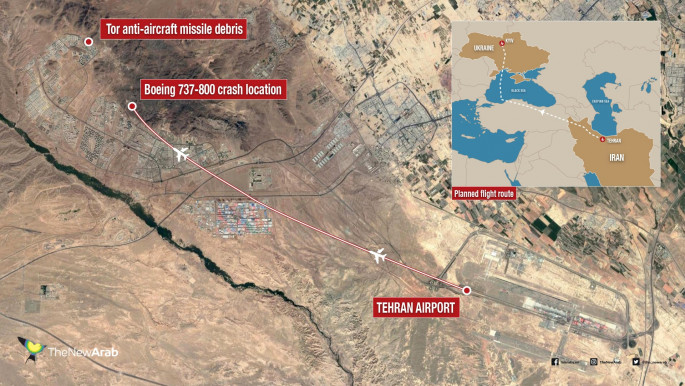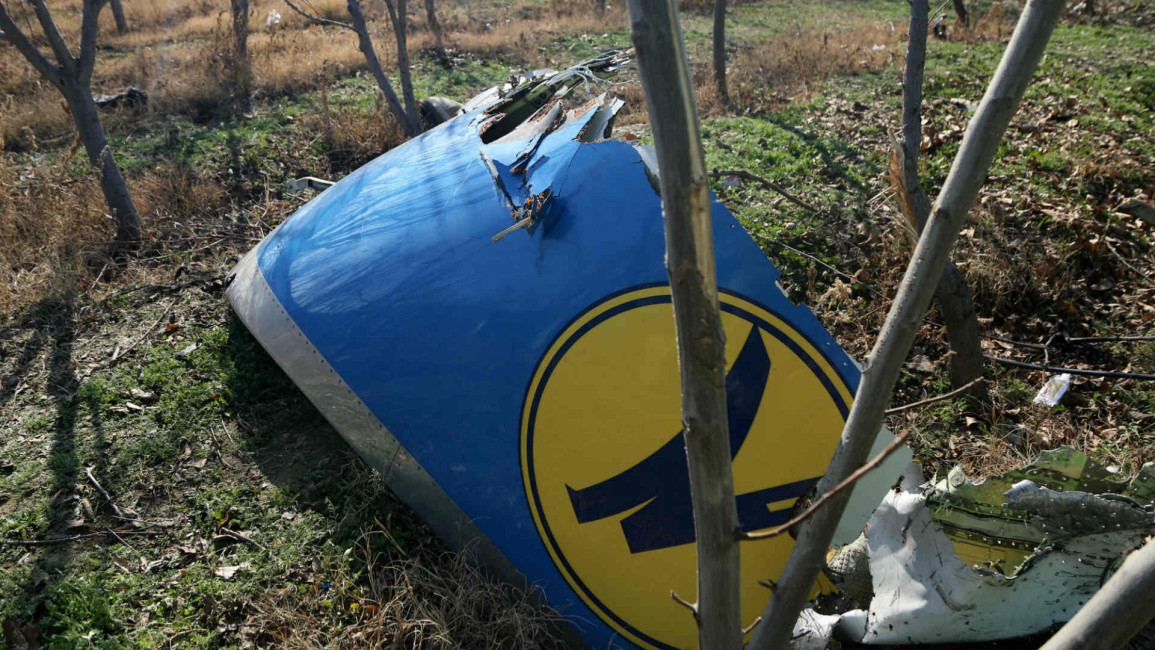Iran aviation boss 'certain' Ukraine plane not hit by missile despite mounting speculation
Iran's civil aviation chief Ali Abedzadeh insisted on Friday he was "certain" a Ukrainian airliner which crashed outside Tehran this week was not hit by a missile, despite a growing number of world powers alleging the contrary.
"One thing is for certain, this airplane was not hit by a missile," Abedzadeh told a news conference in Tehran after Britain and Canada both said intelligence sources suggested a catastrophic error by Iranian air defence batteries had downed the aircraft.
"The information in the black boxes ... is crucial for the aviation organisation to make a statement," Abedzadeh said, adding that they were intact and under examination.
Dismissing allegations against Iran, he said that "any remarks made before the data is extracted ... is not an expert opinion."
Read more: Missile attack or engine failure? The possible causes of the Iran plane crash explained
The statements from Britain and Canada came as eyewitnesses and video footage emerged that appeared to show the moment the airliner was hit.
The footage, which The New York Times said it had verified, shows a fast-moving object rising to an angle into the sky before a flash is seen, which dims and then continues moving forward. Several seconds later an explosion is heard.
Twitter Post
|
"We have seen some videos. We confirm that the airplane was on fire for 60 to 70 seconds," Abedzadeh said.
But "that it was hit by something cannot be scientifically correct," he added.
To add further suspicion to Iran's investigation, reports emerged on Friday morning of the crash site being completely cleared of the wreckage, with no investigators or security remaining.
'Canadians deserve answers'
Canadian Prime Minister Justin Trudeau said on Thursday that multiple intelligence sources indicated that an Iranian missile downed the Ukraine International Airlines Flight PS752 moments after it took off from Tehran.
Citing information from allies as well as Canada's own intelligence, Trudeau said the plane appeared to have been hit by an Iranian surface-to-air missile.
"We know this may have been unintentional. Canadians have questions, and they deserve answers," Trudeau told reporters.
Sixty-three Canadians lost their lives in the tragedy, along with 82 Iranians, 11 Ukrainians, 10 Swedes, four Afghans, three Germans and three Britons.
He was backed by other Western leaders, including British Prime Minister Boris Johnson who said mounting evidence supported a missile strike, which "may well have been unintentional".
US President Donald Trump indicated that Washington officials believed the Kiev-bound Boeing 737 was struck by one or more Iranian missiles before it ditched and exploded outside Tehran.
Anonymous eyewitnesses near the site of the crash have told the press they heard an explosion that shook houses and set off car alarms. They then saw a moving light in the sky hit another object, which burned across the sky for around a minute.
The initial explosion is thought to have been the firing of the missile from a garrison near the town of Parand, where the plane's last signal was received.
The US National Transportation Safety Board said late Thursday it had received formal notification of the crash from Iran and would send a representative to join the investigation.
'No radio message'
Iran's foreign ministry earlier invited US plane maker Boeing to "participate" in the probe.
| |
The flight went down in the dark just minutes after takeoff, with no radio message from the pilot to indicate distress, according to the Iranian Civil Aviation Organisation.
With tensions high between the United States and Iran, the disaster unfolded just hours after Tehran launched ballistic missiles towards bases in Iraq housing US troops.
In-depth: A decades-long battle: The Iran-US rivalry explained
Iran was retaliating for the 3 January US drone strike in Baghdad that killed Iran's most senior general, Qasem Soleimani.
The Iranian government said the missile strike scenario made "no sense," however, arguing that several internal and international flights had been sharing approximately the same airspace.
Tehran later asked Ottawa to share its information with Iranian investigators.
Agencies contributed to this report.



